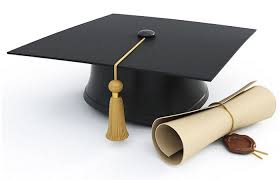- Home
- For Academics
- For Book Authors
- For Businesses
- Proofreading Resources
- About us
- English language blog
Professional English Proofreaders & Copy-editors
Our mission is to deliver sterling dissertation proofreading, editing and paraphrasing services. To achieve this, we employ highly-qualified and professional thesis proofreaders and editors who are capable of providing an excellent proofread, edit and paraphrase.
Similarly, we have proofreaders and copy-editors specialising in legal proofreading, business proofreading, and several other domains and subjects.
Before being recruited, all our editors and proofreaders go through a very rigorous and tough testing process, and they must meet certain minimum conditions, including:
- 1) They must be native English speakers
- 4) They must hold at least 15 years' experience in editing and proofreading academic manuscripts
- 5) They must pass an editing and proofreading test
Additionally, we constantly review our editors' work to ensure the quality of our proofreading, editing and rewriting services is top-notch.
All our editors and proofreaders are based in the UK.
Lead editors
Ryan Alex
Ryan Alex is a former university lecturer and professor. He specialises in proofreading and editing for MA & PhD students in scientific disciplines.Since retiring as a lecturer 5 years ago, Ryan has been utilising all his scientific and academic expertise and background in helping the Ultimate Proofreader's clients ensure their papers are written in the best academic and scientific language possible. We are glad we have many repeat clients because of Ryan's excellent quality work and unparalleled eye for detail.
Customer satisfaction: 99.5%
David Markus
David is a former university professor and lecturer. He has over 10 years of experience in proofreading and editing essays, dissertations and journals to the highest standard.
David is our senior editor for all non-scientific manuscripts. His work has been highly praised not only by students, academics and researchers, but also by organisations and institutions. Many of our clients request David by name, thanks to his commitment to providing a very close edit and proofread of texts assigned to him.
Customer satisfaction: 99.9%
Simon Morgan
Simon Morgan is a university editor. He has worked for various organisations and institutions and is currently helping a university (name withheld) to correct and improve its written academic and scientific publications, as well as its website content.
Simon specialises in scientific subjects in particular and brings to the Ultimate Proofreader over 15 years of experience as a professional academic editor and proofreader. Simon is one of the editors who are requested by name, thanks to his excellent service and meticulousness.
Customer satisfaction: 99.4%
John A.
John D is a published author with over 20 years' experience in editing and proofreading fiction and non-fiction books. John brings great knowledge and expertise about the craft of writing a novel or a short story.
John is our lead book copy-editor and his work has been highly praised and recommended. We have had many repeat clients because of John's excellent proofreading and editing skills. John also helps us with rewriting and paraphrasing and he never fails to impress clients.
Customer satisfaction: 99.3%






